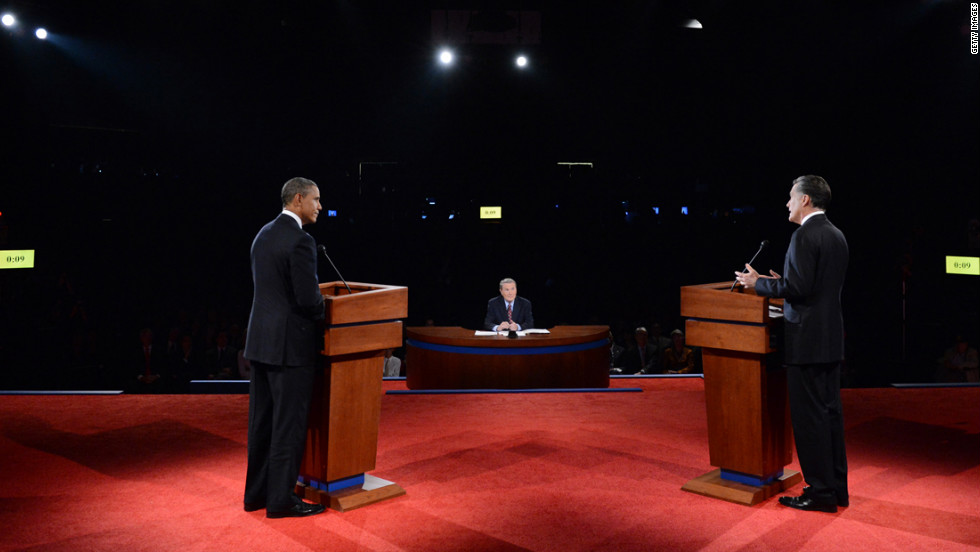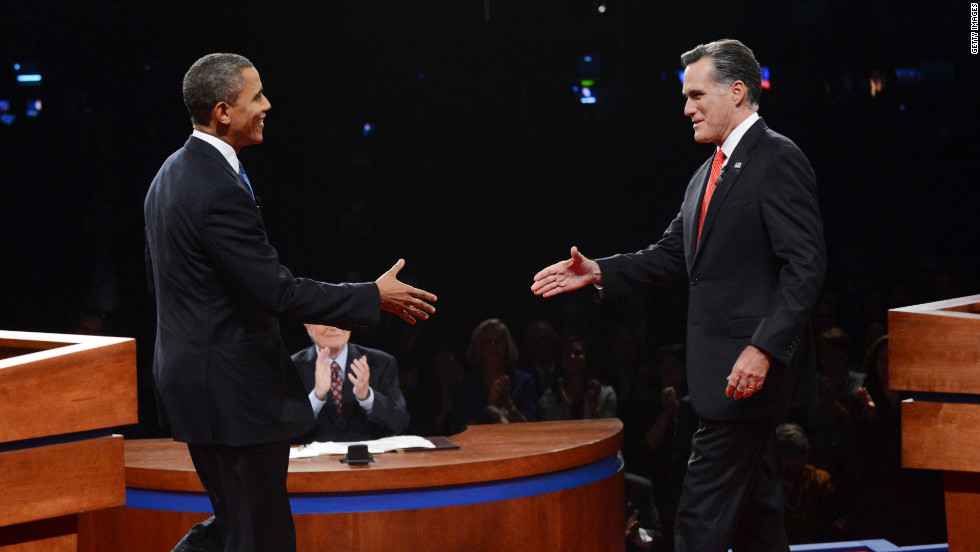Story highlights
- CNN's Jessica Yellin analyzes President Barack Obama's debate performance
- Obama's team had him cling too hard to his nice-guy image, Yellin observes
- Yellin also points out the president didn't engage in enough debate prep
- Finally, the president doesn't take criticism well, and that hurt him, Yellin says
President Barack Obama turned in a less-than-stellar performance Wednesday night in his first debate this election season. On Thursday, his campaign aides said former Massachusetts Gov. Mitt Romney came armed with distortions. But if the president believed that, he barely brought them to the viewers' attention during the debate. Instead, he turned in a distracted, passionless performance.
Here are five reasons he fumbled:
1. His nice-guy image: The Obama team believes the president's biggest asset is his likability. They want him to preserve that at all costs. They're convinced undecided voters don't want to see him engaged in verbal combat -- so he rose above it. That meant he passed on openings to attack Romney.
He also missed openings to defend his own record and didn't challenge what his campaign now labels Romney "distortions." It let him stay the nice guy, but isn't there a saying about the nice guy and where he finishes?
2. Misjudging the room: They decided this wasn't about the debate. Instead, it was an opportunity, like the speech at the Democratic National Convention, to speak directly "to voters at home, not the people in the room." Viewers saw that tactic a few times when the president looked directly into the camera to deliver his message.
But a debate is about engaging with at least two people in the room -- the opponent (Romney) and the moderator (Jim Lehrer). By reaching beyond them (and at one point snapping at Lehrer), the president seemed disengaged and disinterested -- and no doubt that matters to the people watching at home.
3. Not enough prep: The president held more strategy sessions about the debate than actual mock debates. It's no doubt harder to find the time to prep when you're a sitting president and not a candidate, but to get rehired, he needs to find the time. Known for his gift with words, the president is, according to sources, challenging to coach. He believes he's his own best critic and that he knows what to say and how to say it.
4. Incumbency syndrome: Did you get the sense the president did not want to be on that stage, that other things were on his mind?
He appeared impatient with the experience, not unlike other incumbent presidents, including George W. Bush 2004. It read almost as if the president is dealing with too many other domestic and global issues to stand there and volley about campaign promises when he has -- in the mind of the incumbent -- more pressing matters. He seemed to have a bad case of it Wednesday night.
5. Doesn't take criticism well: It's no secret Obama is a confident man. He wouldn't have a lot of patience for advisers talking about how to score style points. But as Al Gore's sighing debate performance in 2000 proved how a candidate looks when he's not speaking can be as important as what he says.
Sources tell CNN that during debate prep, only the president's inner circle stayed for the critique of the president's performance after the mock debates. Even then, it didn't seem to make enough headway to calm the president's impatience with this process.
Maybe next time, they'll show the president tape of his downward gaze and grimacing during Romney's answers -- and let him provide his own self-criticism before he shows up in Hempstead, New York, for the second debate at Hofstra University.
Three things we know about the president: He's fiercely competitive, hates losing and he is disciplined. After last night's experience, he will no doubt adjust and come in ready with a different performance for round two. But he has to avoid the problem Al Gore faced in 2000. Gore was too passive in one debate so he overcorrected and came off as too aggressive in another -- missing the mark both times.







































































